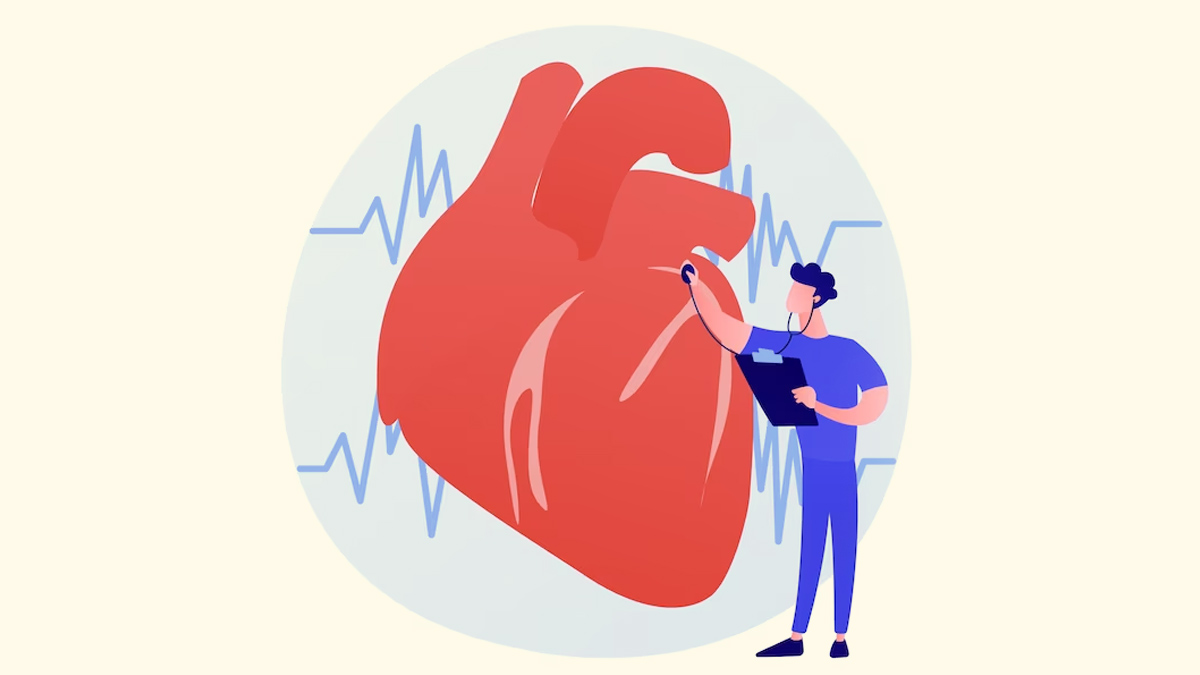
Our heart is like an engine that keeps a human body running. It pumps blood throughout our circulatory system, delivering oxygen and nutrients to our organs and tissues. But what happens when this vital organ stops working as it should? A heart attack, also known as a myocardial infarction, occurs when the blood flow to the heart is blocked, leading to damage or death of the heart muscle.
According to the World Heart Federation, heart failure affects up to one in every five persons during their lifetime and is associated with significant mortality and morbidity, despite developments in treatment.
As per the Anatolian Journal of Cardiology, the monthly mortality due to heart failure is around 10% and annual mortality is around 35%. The rehospitalisation rate following heart failure is around 10% monthly and 30% annual.
“To diagnose a person with heart failure, look for symptoms such as exhaustion, swollen legs, protruding neck veins, and noises caused by fluid buildup in the lungs”, says Dr Santosh Kumar Dora, Senior Cardiologist at Asian Heart Institute, Mumbai.
Triggers Of Heart Attacks
Describing triggers of heart attacks, Dr Dora said that heart failure begins after an ‘index event’ which produces an initial decline in the pumping capacity of the heart. This index or causative event could be:
- Hypertension (high blood pressure)
- Myocardial infarction ( blockage in coronary artery)
- Cardiomyopathy (weakness of the heart muscle)
- Heart valve damage
- Congenital heart defects
- Myocarditis (heart muscle conditions)
- The development of certain medical conditions which can weaken the heart
Types Of Heart Failure
Broadly, there are two types of heart failure:
Systolic heart failure: It happens when the muscles in the left ventricle of the heart become too weak and cannot contract properly.

Diastolic heart failure: It is caused when the muscles in the left ventricle become too stiff. The left ventricle is unable to relax between two pumping actions.
The Complications
Symptoms of heart failure vary depending on the severity of the condition. Those with mild heart failure may not have any symptoms at all, while others may experience shortness of breath, fatigue, swelling in the legs or feet, coughing, and wheezing. As the condition progresses, symptoms can become more severe, leading to difficulty breathing even while at rest and an inability to carry out daily activities.
Also read: Government Studying Link Between COVID-19 & Heart Attack: Union Health Minister
Severe heart failure also can lead to multi organ dysfunction including kidney, liver etc. Heart failure patients are also prone to various arrhythmias such as atrial fibrillation, ventricular tachycardia and ventricular fibrillation. Ventricular tachycardia and fibrillation leads to cardiac arrest and sudden cardiac death.

Treatment
Several treatment options are available for heart failure, including lifestyle changes, medication, and surgical interventions. Lifestyle changes such as losing weight, eating a heart-healthy diet, and exercising regularly can help improve heart function and reduce symptoms.
Under the recommendation of a doctor, medications such as diuretics, ace-inhibitors, ARNI, and beta-blockers can also help improve heart function and reduce symptoms. In some cases, surgical interventions such as heart valve repair or replacement, or a heart transplant may be necessary.
Also read: The Risk Of Heart Attack Is Linked To Your Blood Type
Takeaway
Even though heart failure is a debilitating condition, people can live a fruitful life even with it. You can stop your condition from getting worse by not smoking, taking less salt and water, periodic visits to your doctor, taking your medicines regularly, monitoring your weight and blood pressure and stress-relieving activities like yoga and meditation.
Also watch this video
How we keep this article up to date:
We work with experts and keep a close eye on the latest in health and wellness. Whenever there is a new research or helpful information, we update our articles with accurate and useful advice.
Current Version